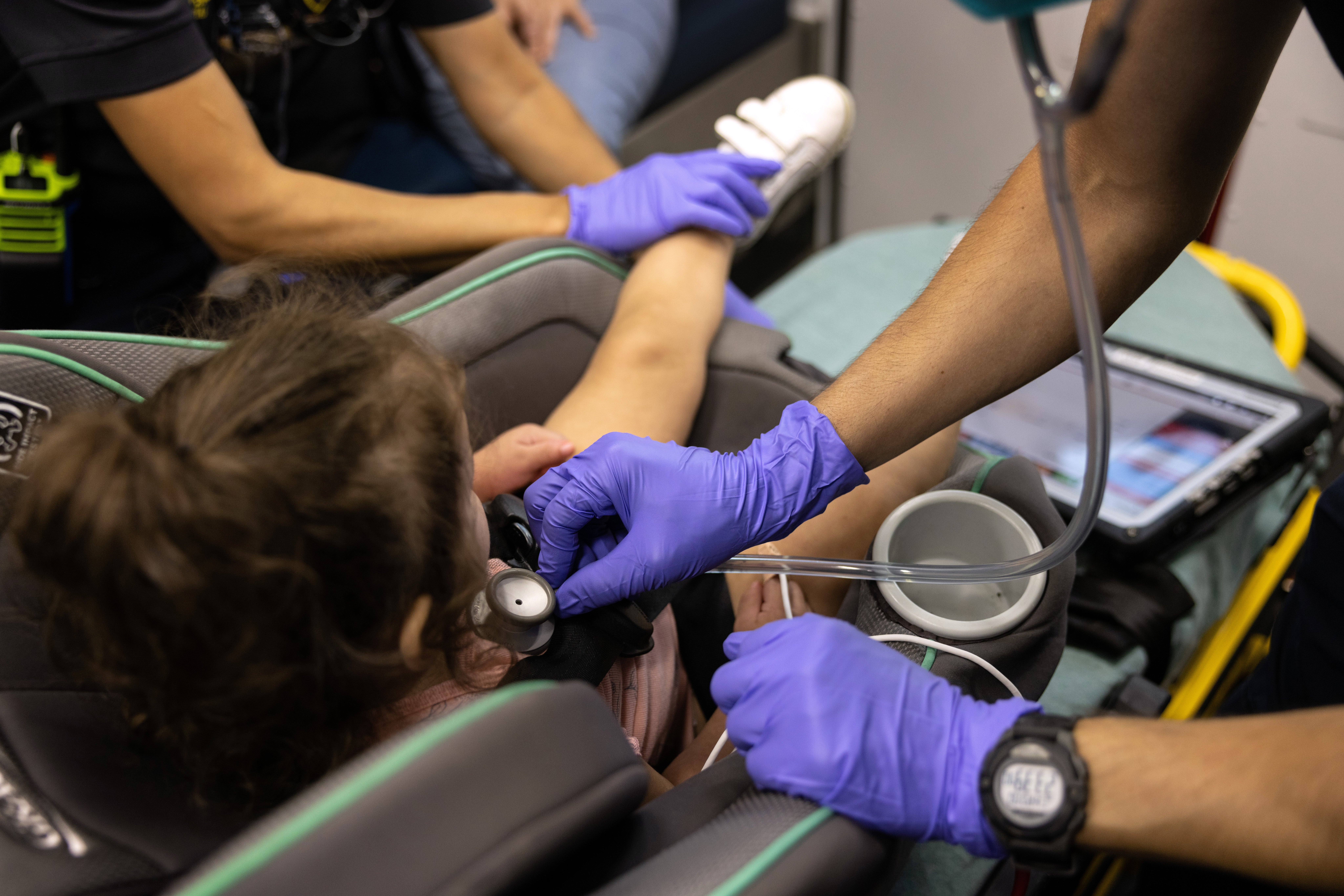Hepatitis in children: Any delays in diagnosis could lead to negligence claims, say lawyers
Because the UK’s 163 cases have been identified retrospectively, there is potential that doctors and medics may have ‘missed signs’, lawyers believe

Parents whose children have mysteriously fallen ill with hepatitis and received a delayed diagnosis could be entitled to negligence claims, lawyers believe.
Officials are no closer to explaining a recent and unusual outbreak in cases of liver inflammation recorded among young children across the UK.
To date, a total of 163 children have been diagnosed. Eleven of these have received liver transplants, while 13 are currently in hospital. Globally in recent months, 300 children have been struck down by the illness, which has no clear cause.
Because the UK cases have been identified retrospectively, there is potential that doctors and medics may have “missed signs” which would have led to earlier hepatitis diagnoses and treatment, lawyers say.
“The obvious issue there from a negligence point of view is if you have missed signs, which ought to have led you to a diagnosis of hepatitis earlier, as a result of which it’s gone untreated and the outcome is worse, then potentially you’re negligent,” said Jonathan Peacock, a partner at VWV specialising in clinical negligence.
“There’s two stages: was the care diagnosis, treatment, intervention, was that of a reasonable standard? If the answer is no – there was clearly a negligent delay, or a breach of duty of care, then the second question that then arises is has the individual been harmed by that delay?”
Dr Meera Chand, director of clinical and emerging infections at UK Health Secuity Agency (UKHSA), said: “The NHS has an expert network caring for children with liver injury and these children were diagnosed and treated at the time they were unwell. UKHSA’s role is to link together cases to identify patterns and understand how these cases are connected and what is driving the rise in hepatitis.”
The affected children have been screened for the usual viruses that cause hepatitis but these have not been detected. Officials are investigating possible links to adenovirus, which has been the most frequently detected pathogen in the 163 cases.
“The leading hypotheses remain those which involve adenovirus,” UKHSA said in its latest technical briefing on the outbreak.
However, the virus group does not typically make children seriously unwell. Passed from person to person via coughs and sneezes, it can cause colds, vomiting and diarrhoea – but it is not associated with severe hepatitis in otherwise healthy children, with scientists still unsure what is behind the increase in diagnoses.
Of the 163 cases, 118 have been detected in England, 22 in Scotland, 13 in Wales and 10 in Northern Ireland, some of which stretch back to the beginning of the year. A total of 13 children are in hospital with liver inflammation, while 88 have fully recovered or been discharged.
Stephanie Prior, who is head of clinical negligence at Osbornes Law, said claims were “possible” but added that each case will have to be “thoroughly investigated before advice on this can be given, including a full and thorough review of the medical records of the child”.
“The bottom line is that a proper physical examination should be carried out on a child that is unwell and this may or may not reveal a swollen/enlarged liver,” she said.
“If so, blood tests to check liver enzymes that are elevated when the liver is damaged or infected as well as blood tests to check for the presence of any of the viruses that cause hepatitis should be carried out.
“The first point of contact would have been a GP or A and E and any child attending with parents should be thoroughly examined.”
The cases are predominantly in children under five years old, who showed initial symptoms of diarrhoea and nausea followed by the onset of jaundice, according to UKHSA.
Mr Peacock said the first two of these symptoms could easily be “put down” to general childhood sickness.
However, he added, if doctors have “missed something like jaundice, yellowing of the eyes, or have failed to follow up a red flag symptom like that, then you might look back on these retrospective cases and say, ‘The jaundice was there and it’s recorded … [but] doesn’t seem to have been followed up’.”
“Those are the sorts of things you’re looking at. Have the doctors actually picked up on the signs or have they perhaps not paid enough attention to it?”
He said his advice for affected families would be to see what comes from the ongoing investigations and research into the outbreak.
Regarding the 11 liver transplants, Mr Peacock said, “If they were avoidable with quicker treatment, quicker diagnosis, then potentially you would then look back and say ‘Well, we’ve got a situation which clearly could have been mitigated. Was the failure to act quicker negligent or simply unavoidable?’”
Helen Osborne, a senior associate in clinical negligence at consumer law firm Slater and Gordon, said: “This is a very complex and evolving issue.
“Hepatitis and damage to the liver are diagnosed by way of blood tests. These tests and the results can be obtained on the same day the child presents to hospital.
“Therefore, if clinical staff have failed to follow up with these simple tests, despite concerning symptoms, then this could amount to a delay in diagnosis of hepatitis. Such a negligent delay could lead to successful medical negligence claims.”
Dr Chand said last week: “It’s important that parents know the likelihood of their child developing hepatitis is extremely low.”
She said parents should still be alert to the signs – particularly jaundice – and they should contact a doctor if concerned.
Join our commenting forum
Join thought-provoking conversations, follow other Independent readers and see their replies
Comments
Bookmark popover
Removed from bookmarks